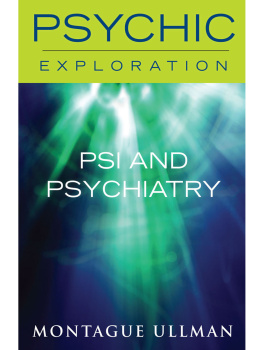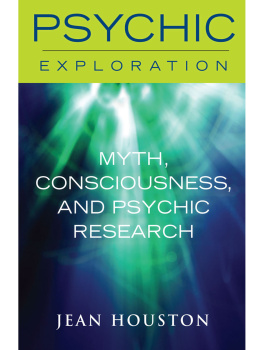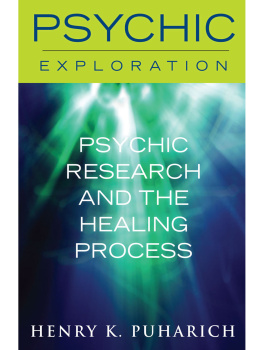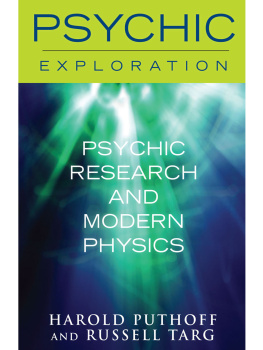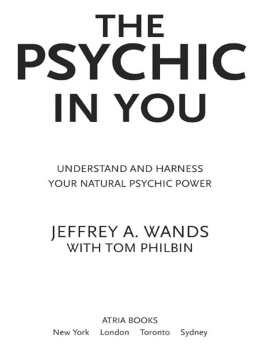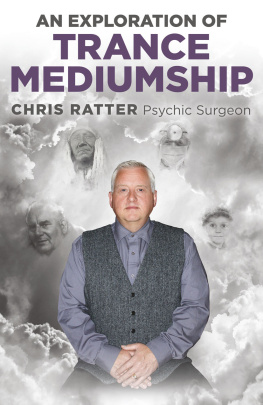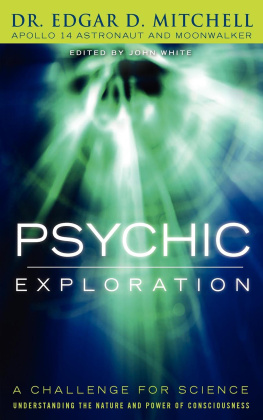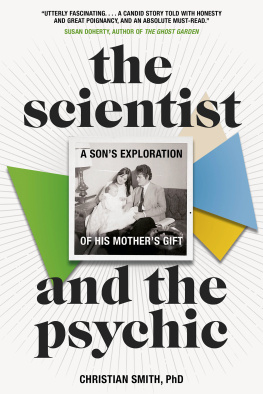Montague Ullman - Psi and Psychiatry
Here you can read online Montague Ullman - Psi and Psychiatry full text of the book (entire story) in english for free. Download pdf and epub, get meaning, cover and reviews about this ebook. year: 2016, publisher: Cosimo Books, genre: Romance novel. Description of the work, (preface) as well as reviews are available. Best literature library LitArk.com created for fans of good reading and offers a wide selection of genres:
Romance novel
Science fiction
Adventure
Detective
Science
History
Home and family
Prose
Art
Politics
Computer
Non-fiction
Religion
Business
Children
Humor
Choose a favorite category and find really read worthwhile books. Enjoy immersion in the world of imagination, feel the emotions of the characters or learn something new for yourself, make an fascinating discovery.
- Book:Psi and Psychiatry
- Author:
- Publisher:Cosimo Books
- Genre:
- Year:2016
- Rating:5 / 5
- Favourites:Add to favourites
- Your mark:
- 100
- 1
- 2
- 3
- 4
- 5
Psi and Psychiatry: summary, description and annotation
We offer to read an annotation, description, summary or preface (depends on what the author of the book "Psi and Psychiatry" wrote himself). If you haven't found the necessary information about the book — write in the comments, we will try to find it.
Psi and Psychiatry — read online for free the complete book (whole text) full work
Below is the text of the book, divided by pages. System saving the place of the last page read, allows you to conveniently read the book "Psi and Psychiatry" online for free, without having to search again every time where you left off. Put a bookmark, and you can go to the page where you finished reading at any time.
Font size:
Interval:
Bookmark:
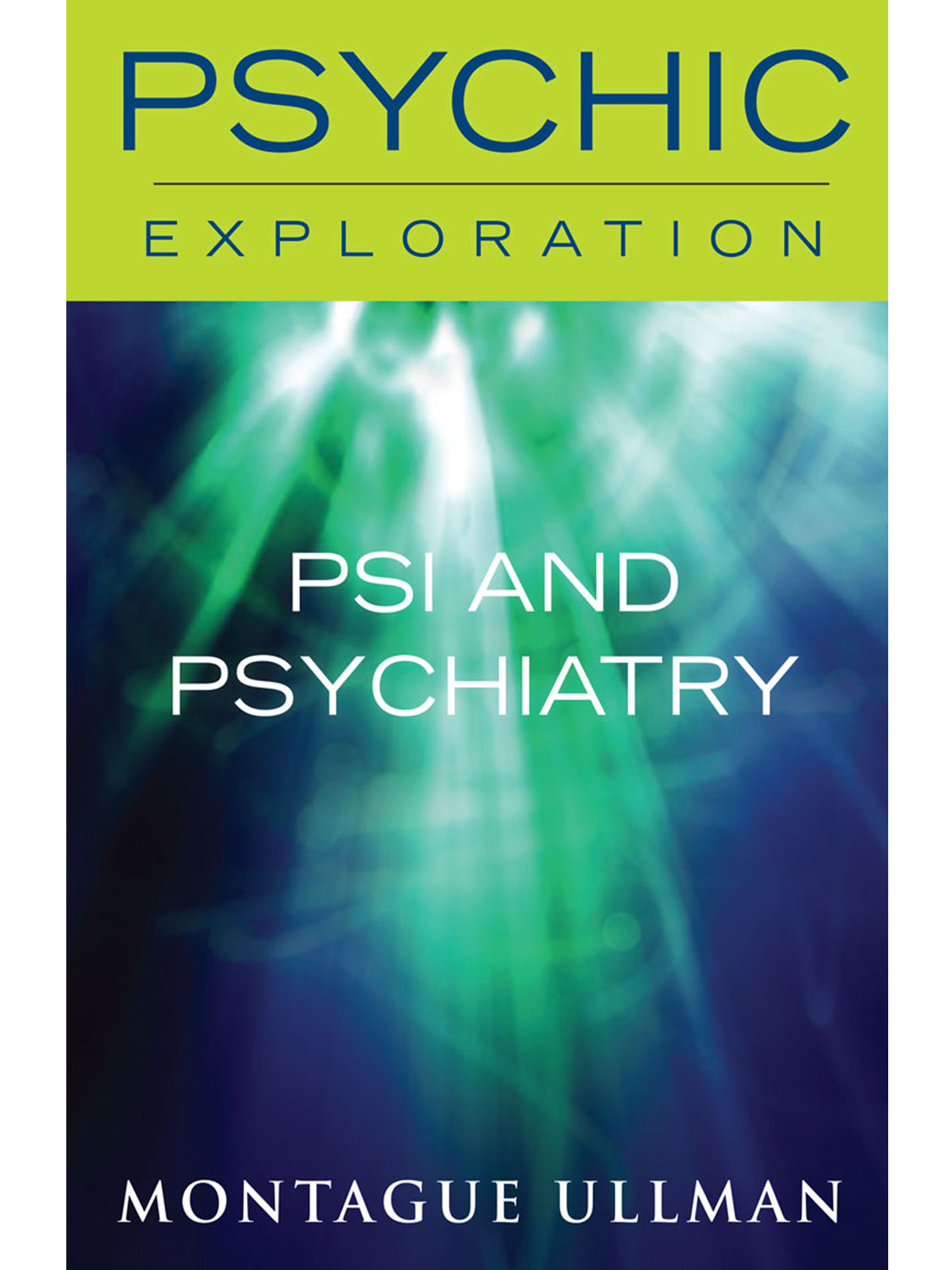
PSYCHIC
EXPLORATION
Psi and Psychiatry
Montague Ullman
Psi and Psychiatry, copyright 1974 by Montague Ullman. First published by G.P. Putnams Sons in 1974 as part of Psychic Exploration: A Challenge for Science. Current edition published by Cosimo Classics in 2015.
Cover copyright 2015 by Cosimo, Inc. Cover design by www.popshopstudio.com.
Cover image #83899506 from clipart.com.
ISBN: 978-1-94452-916-1
For more information, contact us at www.cosimobooks.com
Note to the Readers: This mini-ebook was earlier published as part of a compilation of essays in Psychic Exploration: A Challenge for Science, Understanding the Nature and Power of Consciousness (originally published in 1974; reprinted by Cosimo Books in 2011), edited by Apollo 14 astronaut, moonwalker, and founder of the Institute of Noetic Sciences, Edgar Mitchell.
Each of the 28 chapters in the original Psychic Exploration was dedicated to a specific field of research in parapsychology, written by leading experts and scientists, such as Stanley Krippner, Montague Ullman, Charles Tart, Russel Targ, William Roll, Jean Houston, Willis Harman, and many others. With the advent of ebook technology, we feel that each of these unique essays deserve attention as a dedicated mini-ebook in addition to the complete version of Psychic Exploration.
If you prefer exploring specific subjects or authors, below is a complete list of the individual essays, all available as mini-ebooks. On the other hand, if you are interested in all of the essays and the field of parapsychology in general, we encourage you to read the original Psychic Exploration, available at online bookstores in both paperback and ebook versions.
However you decide to read these essays, we know you will receive a thorough introduction to psychic research in its many forms, from what is now considered a classic in the parapsychology genre. Part of the proceeds of this mini-ebook will benefit the Institute of Noetic Sciences (www.noetic.org).
INDIVIDUAL ESSAYS FROM PSYCHIC EXPLORATION
A History of Parapsychology , by Martin Ebon (978-1-94452-907-9)
Famous Western Sensitives, by Alan Vaughan (978-1-94452-908-6)
The Psychic Personality, by Gertrude Schmeidler (978-1-94452-909-3)
Telepathy, by Stanley Krippner (978-1-94452-910-9)
Clairvoyance, by Rex G. Stanford (978-1-94452-911-6)
Precognition and Retrocognition, by E. Douglas Dean (978-1-94452-912-3)
Psychokinesis, by Helmut Schmidt (978-1-94452-913-0)
Parapsychology Today, by Rhea A. White (978-1-94452-914-7)
The Psychobiology of Psi, by Robert L. Morris (978-1-94452-915-4)
Psi and Psychiatry, by Montague Ullman (978-1-94452-916-1)
Anthropology and Psychic Research, by Robert L. VanDe Castle (978-1-94452-917-8)
Man-Plant Communication, by Marcel Vogel (978-1-94452-918-5)
Psychic Photography and Thoughtography, by Jule Eisenbud (978-1-94452-919-2)
Psychic Research and the Healing Process, by Henry K. Puharich (978-1-94452-920-8)
Out-of-the-Body Experiences, by Charles T. Tart (978-1-94452-921-5)
Apparitions, Hauntings, and Poltergeists, by D. Scott Rogo (978-1-94452-922-2)
Survival Research: Problems and Possibilities, by William G. Roll (978-1-94452-923-9)
The Emergence of Para physics: Research and Applications, by James B. Beal (978-1-94452-924-6)
The Emergences of Para physics: Theoretical Foundations, by Brendan OReagan (978-1-94452-925-3)
Psychic Research in the Soviet Union, by Thelma Moss (978-1-94452-926-0)
Devices for Monitoring Nonphysical Energies, by William A. Tiller (978-1-94452-927-7)
Psychic Research and Modem Physics, by Harold Puthoff and Russell Targ (978-1-94452-928-4)
Consciousness and Quantum Theory, by Evan Harris Walker (978-1-94452-929-1)
Psychic Phenomena and Mystical Experience, by Lawrence L. Leshan (978-1-94452-930-7)
Myth, Consciousness, and Psychic Research, by Jean Houston (978-1-94452-931-4)
Consciousness and Extraordinary Phenomena, by Robert Masters (978-1-94452-932-1)
Psi-Conducive States of Awareness, by Charles Honorton (978-1-94452-933-8)
The Social Implications of Psychic Research, by Willis W. Harman (978-1-94452-934-5)
Montague Ullman
This chapter traces the close connection that has always existed between medical psychology and psychic research. Beginning with the interest of some of the pioneers of both the SPR and the ASPR in the exciting discoveries of the unconscious dimensions of human personality and the possible relevance of the study of abnormal mental states to their pursuits, the theme of this interconnection was examined by the founders of the psychoanalytic movement and their followers down to the contemporary scene. The contributions from the clinical setting have provided a rich store of information concerning the emotional atmosphere in which psi occurs, the personality dynamics at play, the relative roles of patient and therapist, and the clinical criteria for the recognition of the telepathic dream. An example of one such dream is included.
Psychiatry is the branch of medicine that deals with disturbances in thought, feeling, and behavior. Such disturbances may be mild and reversible or severe and irreversible. They may be functional or organic, depending on whether there are identifiable changes in brain structure or physiology. Psychiatry as such may be viewed as an applied science coming under the broader heading of the behavioral sciences. The latter designation is multidisciplinary and includes both theoretical and applied sciences having to do with behavior; it addresses itself to the full range of human behavior, both normal and pathological. Several common threads bind the behavioral scientists of today with their precursors of the last century. These include an interest in the unconscious determinants of behavior, the range of human potential, and the roots of eccentric, deviant or unusual behavior.
All of these interests are prominently revealed in the writings of the early group of scholars and scientists who struggled to initiate and develop psychic research on a scientific basis. Thus, major themes filling the publications of the SPR and the ASPR during their formative years were the problems of subliminal consciousness, the nature of suggestion and hypnosis, the nature of trance states, possession, and multiple personality. All of these concerns are very much with us today, in more modern dress, in the attention we pay to the unconscious dimension of human personality and in our various investigations into the broad range of phenomena associated with altered states of consciousness (reverie, trance, hypnosis, dreams, hypnogogic states, psychotic states, etc.). Then, as now, psychic researchers were intrigued with the possible relevance of these states to psychic or paranormal phenomena.
A number of distinguished psychologists and medical men specializing in nervous disorders were associated with the early work of the SPR. Their efforts were both exploratory and reactive-exploratory in terms of their dogged efforts to study, evaluate, and record instances of paranormal phenomena and reactive in the sense of taking issue with what they felt were the limiting aspects of the materialism and determinism that characterized the science of their day and the outlook of scientists generally. They were perhaps the humanistic psychologists of their time, open to all that could shed new light on human nature and its potential. Holding that the danger of mechanistically boxing man in was far greater than the almost inevitable social stigma and the frustration of false leads that one encounters in tracking down the paranormal, they nevertheless chose the latter course. They set themselves the task of examining occult claims, including the evidence for survival, designing experiments in thought transference and clairvoyance and exploring the emerging field of hypnosis for its possible relevance to the phenomena they were studying. They took a second look at various psychopathological syndromes with the same end in mind. Hysteria (45, 46) was studied not only in relation to unconscious mental functioning but also for the light it could shed on such well-known effects as the sensory and motor automatisms that often occurred in trance states. Cases of multiple personality (45, 47) were assiduously observed for their bearing on a theory of consciousness and the role of the subliminal or subconscious. Cases of paranoia and obsession (53) were studied from the standpoint of possible spirit possession and the question of the continued existence of discarnate entities.
Font size:
Interval:
Bookmark:
Similar books «Psi and Psychiatry»
Look at similar books to Psi and Psychiatry. We have selected literature similar in name and meaning in the hope of providing readers with more options to find new, interesting, not yet read works.
Discussion, reviews of the book Psi and Psychiatry and just readers' own opinions. Leave your comments, write what you think about the work, its meaning or the main characters. Specify what exactly you liked and what you didn't like, and why you think so.

